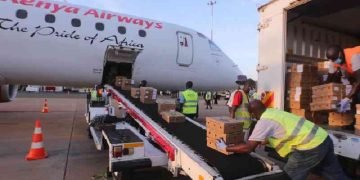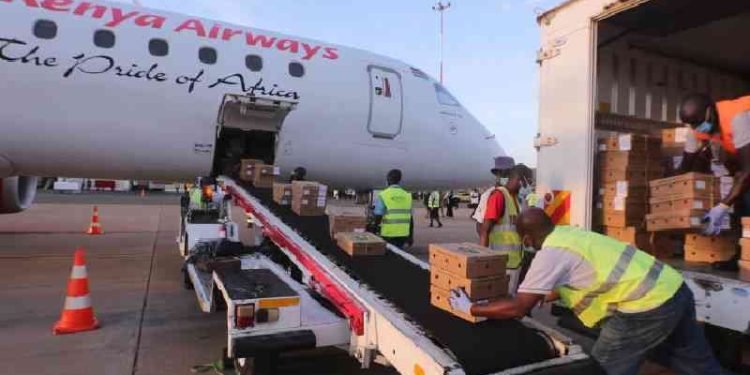By Eva Richardson | The Logistic News
April 8, 2025
As global airfreight markets cautiously recover, Africa’s cargo industry continues to face significant cost headwinds—driven by soaring fuel prices, protectionist policies, and operational inefficiencies. According to leading voices in the sector, these persistent challenges are not only slowing growth but undermining Africa’s potential to become a global freight powerhouse.
At the heart of the issue lies the rising cost of aviation fuel, compounded by geopolitical volatility and regulatory fragmentation. Sanjeev Gadhia, CEO of Astral Aviation, points to inconsistent taxation and elevated insurance premiums as critical drivers of cost.
Fuel, Fees, and Fragmentation
“The volatility in African fuel pricing is partly linked to taxation policies and broader geopolitical dynamics,” Gadhia said. “This adds a layer of unpredictability for airlines that are already navigating narrow margins.”
These concerns are echoed by David Ambridge, Director of Cargo and Mail at TAAG Angola Airlines, who highlights the burden of high airport and cargo handling fees—often a result of government protectionism and lack of competition.
“The excessive charges at African airports are disincentivizing cargo flows. Even worse, delays caused by limited customs service—especially over weekends—mean shipments can sit for up to six days, adding to costs,” said Ambridge.
Delays That Drain Profitability
The misalignment between customs processes and freight forwarder operations is further worsening the situation. Cargo often remains grounded not due to lack of demand, but due to outdated regulatory frameworks and insufficient customs availability.
This results in higher storage fees, increased spoilage risk for perishables, and frustrated shippers forced to absorb the added financial burden.
Calls for Unified Policy and Infrastructure Reform
Industry stakeholders argue that structural reforms and regional cooperation are essential to unlocking Africa’s air cargo potential. Racheal Ndegwa, CEO of Swissport Kenya, has called for a harmonization of policies and resources to reduce inefficiencies.
“The fragmentation in African aviation logistics is a real barrier to growth. Coordinated investment in infrastructure and better policy alignment can unleash significant trade gains,” Ndegwa said.
Despite Challenges, Optimism Remains
Encouragingly, long-term forecasts remain bullish. Boeing projects that African air cargo volumes will double over the next 20 years, fueled by growing consumer markets and the expansion of trade liberalization initiatives.
An industry sentiment survey from Air Cargo News also reflects optimism, with nearly 85% of freight professionals expecting increased volumes in 2025, supported by easing inflation, stronger consumer demand, and improving interest rate conditions.
Conclusion: The High-Cost Equation Must Change
For Africa to fully participate in—and benefit from—the global airfreight boom, it must tackle its cost barriers head-on. That means not just reducing fees or streamlining customs, but embracing a new model of collaborative, digitally-enabled, and policy-aligned air cargo infrastructure.
The potential is vast. But without unified action, the continent risks being priced out of its own growth story.
For more on African logistics, global airfreight trends, and aviation reform, follow Eva Richardson and The Logistic News on LinkedIn and Google News.





















